Poor property infrastructure disrupts your business by derailing operations with frequent maintenance and unexpected production halts. These issues drain financial resources as repair costs soar and operational budgets tighten. Employee morale suffers, and inadequate facilities create stress and reduce productivity. Your clients’ perceptions falter as visible disrepair shakes their confidence in your professionalism and service quality. Legal risks also loom, with potential non-compliance penalties and increased liability for accidents. Such setbacks hinder long-term growth, limiting strategic opportunities and impacting overall business stability. Understanding these dynamics will enhance your ability to safeguard your business against infrastructural shortcomings.
Key Takeaways
- Poor property infrastructure leads to operational disruptions, causing downtime and delays in business activities.
- Structural issues inflate maintenance costs, impacting financial stability and diverting funds from growth initiatives.
- Inadequate facilities lower employee morale and productivity, increasing turnover and stress levels.
- Visible disrepair damages client perception, affecting trust and customer satisfaction.
- Non-compliance with safety regulations due to poor infrastructure incurs legal risks and potential fines.
Operational Disruptions
When poor property infrastructure arises, operational disruptions often follow, causing significant setbacks for your business. You might find that foundation cracks, uneven flooring, or deteriorating walkways create safety hazards and compliance issues. These structural challenges not only lead to costly repairs but also disrupt daily operations, delaying projects and reducing overall efficiency.
For example, damaged concrete in high-traffic areas can become a liability, increasing the risk of accidents and potential legal claims. Similarly, unstable flooring in warehouses or commercial buildings can make it difficult to operate heavy equipment safely, leading to productivity losses. These infrastructure failures demand immediate attention, diverting focus from core business activities and forcing reactive spending on emergency repairs.
To mitigate these risks, investing in high-quality commercial concrete ensures your property remains structurally sound, preventing costly disruptions and maintaining a safe business environment.
Productivity Challenges
Despite your best efforts, poor property infrastructure can greatly hinder productivity in your business. Cracked concrete floors, unstable parking lots, and deteriorating sidewalks not only create safety hazards but also slow down daily operations. When employees must navigate unsafe or uneven surfaces, their efficiency is compromised, leading to wasted time and increased risk of workplace injuries.
You might notice that as infrastructure deteriorates, your employees spend more time addressing these issues rather than focusing on their tasks. This shift in priorities can create bottlenecks, delaying project timelines and reducing overall output. Furthermore, frequent maintenance on commercial concrete surfaces requires time and resources, causing further disruptions.
By working with a commercial concrete contractor, businesses can proactively address infrastructure challenges, ensuring smooth operations and optimal working conditions for employees.
Financial Implications
The impact of poor property infrastructure extends beyond productivity challenges and directly influences your business’s financial health. When your commercial property suffers from structural issues, inefficient walkways, or deteriorating commercial concrete surfaces, you’re faced with increased maintenance and repair costs that strain your budget.
Each unresolved issue contributes to commercial property value loss, making it harder to attract new tenants or buyers. This depreciation can deter potential investors, diminishing your asset’s appeal in a competitive real estate market.
Moreover, failing to maintain your commercial concrete infrastructure can lead to higher operational expenses. For instance, uneven or cracked surfaces may require extensive repairs over time, increasing costs while also posing liability risks. Businesses that neglect routine maintenance often find themselves paying for emergency repairs, which can be significantly more expensive than planned upgrades.

Client Perception
A business’s physical environment speaks volumes about its brand and values, directly influencing client perception. When clients visit your facility, the state of your property is their first impression. Poor property infrastructure, such as cracked commercial concrete walkways, damaged parking lots, or uneven flooring, can quickly lead to negative impressions.
Visible structural damage signals neglect and a lack of attention to detail, which can erode trust in your business’s professionalism. Clients may subconsciously associate these signs of disrepair with the quality of your services or products. If they see deteriorating surfaces, they might question whether your company prioritizes quality and reliability.
Investing in commercial concrete services ensures that your property remains safe, professional, and welcoming, reinforcing trust and confidence in your brand.
Employee Morale
When evaluating the impact of property infrastructure on employee morale, consider how a well-maintained workspace directly influences your team’s motivation and efficiency. A workspace that is free from safety hazards and structural deficiencies fosters a positive environment where employees feel valued and productive.
However, when infrastructure issues like cracked flooring, unsafe parking areas, or unstable commercial concrete walkways persist, they can significantly affect employee morale. The direct impact of infrastructure on business becomes evident as employees face discomfort, safety concerns, and the frustration of interrupted workflows.
Working with a trusted commercial concrete contractor helps eliminate these issues, creating a safer and more motivating workspace for employees.
Practical Solutions
Addressing the negative impact of poor property infrastructure on employee morale opens the door to practical solutions that can enhance your business environment.
First, assess your commercial property’s structural integrity by conducting a thorough inspection. Identify areas where commercial concrete services are needed, such as cracked flooring, uneven walkways, or deteriorating parking lots. Prioritizing these repairs helps prevent minor issues from becoming costly problems.
Once key problem areas are identified, implement a preventive maintenance schedule. Regular upkeep not only mitigates immediate risks but also reduces long-term repair costs. Investing in durable, high-quality commercial concrete solutions ensures a long-lasting, stable foundation for your business.
Another practical solution involves using professional commercial concrete services to repair, resurface, or reinforce existing infrastructure. These improvements enhance safety, prevent further deterioration, and create a more professional appearance for your business.
In Summary
You’ve seen how poor property infrastructure can disrupt operations, hinder productivity, and strain finances. It affects client perceptions and employee morale, making it essential to address these issues head-on. By prioritizing regular maintenance and strategic upgrades with commercial concrete services, you protect your brand’s reputation and foster a positive work environment.
Investing in your business’s physical foundation isn’t just a necessity—it’s a strategic move that guarantees long-term success and growth. Don’t let infrastructure issues hold your business back—trust Elite Concrete for reliable solutions.

